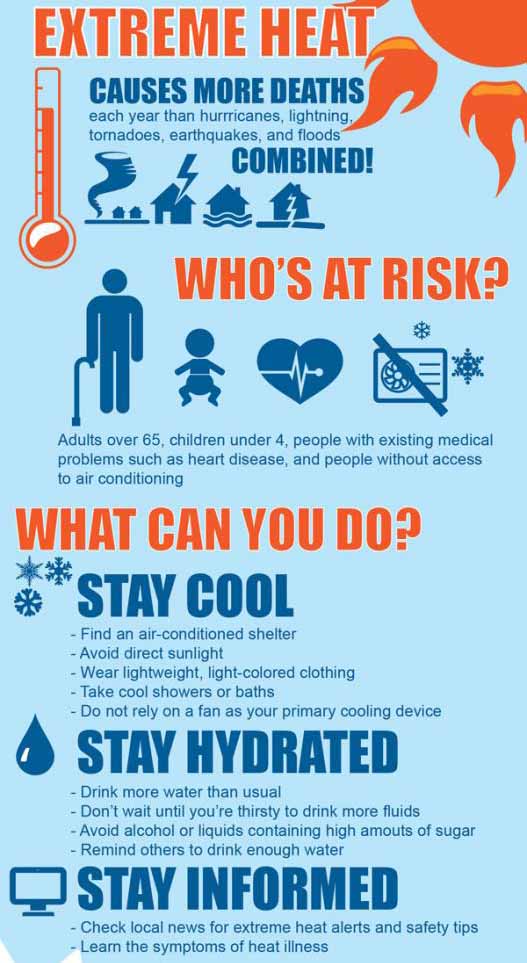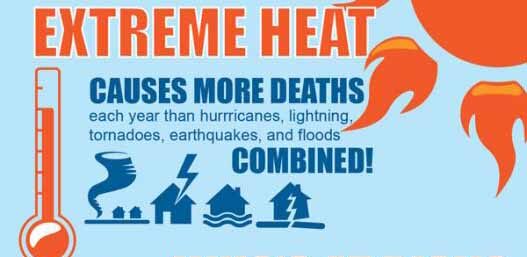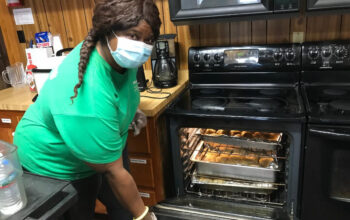It’s a hot one folks! With almost a week straight of excessive heat advisories it is important to take precautions. You can sign up for Nixle alerts via text or email for up-to-date heat advisories.
St. Tammany Parish Government warns of the danger of extreme heat:

Here is some information from ready.gov on extreme heat:
Extreme Heat
Extreme heat is a period of high heat and humidity with temperatures above 90 degrees for at least two to three days. In extreme heat your body works extra hard to maintain a normal temperature, which can lead to death. In fact, extreme heat is responsible for the highest number of annual deaths among all weather-related hazards.
Remember:
- Extreme heat can occur quickly and without warning.
- Older adults, children and sick or overweight individuals are at greater risk from extreme heat.
- Humidity increases the feeling of heat as measured by a heat index.
IF YOU ARE UNDER AN EXTREME HEAT WARNING:
- Find air conditioning.
- Avoid strenuous activities.
- Wear light clothing.
- Check on family members and neighbors.
- Drink plenty of fluids.
- Watch for heat cramps, heat exhaustion and heat stroke.
- Never leave people or pets in a closed car.
HOW TO STAY SAFE WHEN EXTREME HEAT THREATENS
Prepare NOW
- Find places in your community where you can go to get cool.
- Keep your home cool:
- Cover windows with drapes or shades.
- Weather-strip doors and windows.
- Use window reflectors, such as aluminum foil-covered cardboard, to reflect heat back outside.
- Add insulation to keep the heat out.
- Use attic fans to clear hot air.
- Install window air conditioners and insulate around them.
- Learn to recognize the signs of heat-related illness.
Be Safe DURING
- Never leave a child, adult or animal alone inside a vehicle on a warm day.
- Find places with air conditioning. Libraries, shopping malls and community centers can provide a cool place to take a break from the heat.
- If you’re outside, find shade. Wear a hat wide enough to protect your face.
- Wear loose, lightweight, light-colored clothing.
- Drink plenty of fluids to stay hydrated. If you or someone you care for is on a special diet, ask a doctor how best to accommodate it.
- Do not use electric fans when the temperature outside is more than 95 degrees, as it could increase the risk of heat-related illness. Fans create air flow and a false sense of comfort, but do not reduce body temperature.
- Avoid high-energy activities.
- Check yourself, family members and neighbors for signs of heat-related illness.
Recognize and Respond
Know the signs of heat-related illness and how to respond to it.
HEAT CRAMPS
- Signs: Muscle pains or spasms in the stomach, arms or legs
- Actions: Go to a cooler location. Remove excess clothing. Take sips of cool sports drinks with salt and sugar. Get medical help if cramps last more than an hour.
HEAT EXHAUSTION
- Signs: Heavy sweating, paleness, muscle cramps, tiredness, weakness, dizziness, headache, fainting, nausea, vomiting
- Actions: Go to an air-conditioned place and lie down. Loosen or remove clothing. Take a cool bath. Take sips of cool sports drinks with salt and sugar. Get medical help if symptoms get worse or last more than an hour.
HEAT STROKE
- Signs:
- Extremely high body temperature (above 103 degrees) taken orally
- Red, hot and dry skin with no sweat
- Rapid, strong pulse
- Dizziness, confusion or unconsciousness
- Actions: Call 9-1-1 or get the person to a hospital immediately. Cool down with whatever methods are available until medical help arrives.
Visit ready.gov to learn more.




